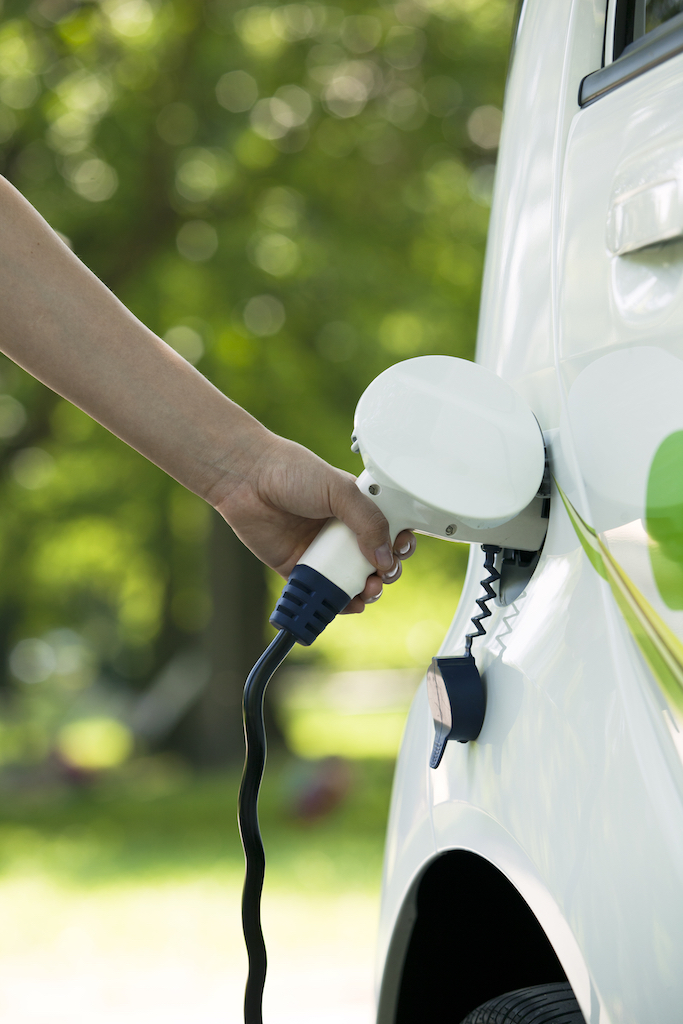If electric cars could talk, they would tell you they feel misunderstood. And those who love them would give them a big hug and a “there, there,” while advising them to be themselves, dare to be different, and ignore the bullies.
The controversy over electric vehicles rages—in the news, on social media, and in daily conversations. Everyone has an opinion, and, as usual, the people objecting most loudly are those who have never driven or even ridden in an electric vehicle.
“They don’t understand how fun and thrilling an EV can be with the quiet ride and the instant acceleration,” said Stewart Stropp, senior director of automotive retail at J.D. Power. “Once they’ve been in an EV, shoppers are three times more likely to get one.”
Many reject the technology on principle. They don’t like the inventors and those who stand to profit from the growing industry. Some view EV ownership as a political issue, rejecting the environmental “go green” spin as left wing government propaganda. And others are simply fearful. After all, change is always a little scary.
The truth is, nearly all new technologies throughout history have initially been criticized, feared, ridiculed, and debunked. Thankfully, some above-average thinkers had the foresight and fortitude to ignore the naysayers and invent such useful tools as electricity, telephones, airplanes, cars, and computers, to name a few.
One sweet ride: my personal EV experience
Although I am typically an early adopter of new techy toys, I’ll be the first to admit I was skeptical about EVs. My husband Tom leased his first Tesla four years ago. I drove it exactly once and decided I was perfectly happy with my familiar ride. Meanwhile, Tom continued to rave about how easy his car was to drive, how great the camera system was, how much he loved it, and how much less fatigued he was after his regular five-hour commute to and from Atlanta. He offered to buy me a Tesla, but I resisted.
Fast forward to 2020, Tom was on his second Tesla by then and still insisting that I “needed” one. “Once you drive it, you will never drive a ‘dumb’ car again,” he said, expounding on his four-wheeled brainchild’s superior intelligence. I was offended for my car’s sake because I thought she was a pretty smart cookie. I just didn’t know what I didn’t know.
In December of 2020, after a particularly expensive service call and a pricey routine oil change, I broke down and accepted my husband’s offer to buy me the Tesla with the agreement that if I didn’t like it, he would take it and I would continue driving my beloved BMW. We ordered it in January of 2021, and after nine months of nervous anticipation, the new Tesla S appeared in my driveway. Tom was right: I never want to drive another car.
For the record, my car is not a reflection of my political views or my stance on environmental issues. I don’t care who invented it or how fat his bank account is. For me, owning a Tesla is about cool technical features that make driving easier, more comfortable, and a lot more fun.
I often say that driving my car is like driving my iPad. Everything I need to control is right at my fingertips on a large touch screen or on my steering wheel. People ask about the learning curve. There were a few adjustments, which took a short drive around my neighborhood and a trip to the grocery store to get used to.
The navigation system is the best I’ve experienced and the get-up-and-go unmatched. Through a system of cameras, sensors and radar, the car can drive and even navigate all by itself—well, almost. The misconception is that people are tooling about in cars that are driving themselves like drunken teenagers on a joy ride. This is not the case. Built-in safety features prevent inattentive use of autopilot functions. You, the driver, must remain in control, but the car can do a lot of the work for you.
Perhaps the nicest feature is the camera system. The large screen in front of the dash gives me a crystal clear picture of everything behind and around me—particularly helpful when backing or maneuvering in tight parking lots. When driving, the system shows every car around me, eliminating blind spots, assisting with lane changes, and generally improving safety.
While I can’t speak for every electric vehicle, these are just a few of many reasons why I love my Tesla. Is it for everyone? Certainly not. If you are a person who is intimidated by new technology or uncomfortable using a computer, then you probably don’t want a car that operates like one. But if you, like me, are intrigued by innovative products and are open to learn a new trick or two, an EV might be your next ticket to ride.
Objection … overruled
As gas prices soar and more Americans consider an electric car, many still have questions and concerns, some legitimate and many that are outdated or unfounded. Let’s take an honest look at a few of the common protestations:
- Limited range. Range anxiety and the fear of getting stranded were valid when EVs were first released because their range was typically less than 100 miles. This anxiety continues to exist, whereas current EVs get anywhere from 200-500 miles on a single charge. Not to mention that charging stations are much more abundant now. Getting a charge on the road is as simple as pulling off to pump gas and a heck of a lot cheaper.
- Inconvenience of plugging in. The easiest and best way to plug in/charge for daily use is in your own garage. Most electric vehicles can be charged with a standard 120 V (Level 1) outlet. To charge the vehicle more quickly, you can install a dedicated 240 V (Level 2) outlet and charge to your heart’s content while you relax in the comfort of your home or sleep through the night. On the road, charging stations are everywhere. According to the U.S. Department of Energy’s Alternative Fuels Data Center, there are currently over 46,000 public EV charging stations in the U.S., with a total of over 115,000 individual (EVSE) charging ports. They are conveniently located just like gas stations, and the network is ever-expanding. So, maybe you have to stop a time or two on your trip. (Tesla calculates your power needs based on the destination and automatically routes you to a nearby charger well in advance.) You’ll have time to stretch your legs, visit the restroom, get a snack, let Fido out to relieve himself, etc.
- Cost of charging. While the electricity to charge is not free, the cost of charging at home is relatively inexpensive. How much you pay will depend, of course, on how much you drive and how often you need to charge. According to John Voelcker, a longtime automotive journalist and industry analyst who specializes in electric vehicles, “A conservative rule of thumb is that an electric car gets 3 to 4 miles per kWh. So, divide the total miles you drive each month by three to get the kWh you would use monthly. Multiply that number by your cost per kWh. The dollar amount you get will most likely be lower than what you pay each month to buy gasoline.”
Rates vary at public charging stations, depending on region, timing, the model you’re charging, and whether you choose Tier 1 or Tier 2 recharge speeds (the latter being quick but more expensive). One important caveat: Tesla Superchargers only work for Tesla vehicles. That is until the network opens up to other EVs in the United States.
- Potential power outages. This is a completely unfounded fear. Generally, power outages don’t last long, and you are smart enough to keep your car charged ahead of your daily needs, just as you would keep enough fuel in your gas tank to get to work and back. Should the power be out in your area for an extended time, there will be a convenient charging station in the next town over or certainly within your car’s range. It’s no different than searching out fuel for your gasoline-powered automobile.
- Sticker shock. It’s true that electric vehicles are expensive. It’s also true that they cost less to maintain over time: no parts to replace, no oil to change, no fluids to add, and of course, no gas. Yes, batteries wear out over time, but many of today’s EVs warrant their batteries for eight years or 100,000 miles. You may also be eligible for a federal tax credit and/or state tax rebate and other incentives to offset the initial cost of the vehicle. Additional perk: In most areas, you can ride solo in the HOV lanes, saving you time, energy, and money.
- The climate enigma. Some people tout electric vehicles as the green option, claiming that their environmental impact is much lower than that of a gas-powered vehicle. While no greenhouse gas emissions come directly from EVs, studies point to the high level of emissions required to produce EV batteries and the electricity they use unless it is sustainably sourced. There’s also the question of what to do with the spent batteries. Improved methods of recycling and reuse are under development and will be essential in lessening any future environmental footprint of electric vehicles.
- What about hurricane evacuations? The most common objection locally is from residents concerned about being stranded during a hurricane evacuation. Preparing by fully charging your EV is no different than filling up your gas tank prior to a storm. Could you run out of juice along the way? Technically, yes, but it’s not likely with all the built-in reminders and navigation tools to find the nearest chargers and superchargers.



